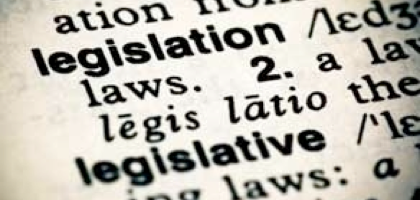The Australian Government has placed a great deal of information relating to the Future of Financial Advice (FoFA) reforms on a dedicated website. The Government stated that FoFA reforms focus on two things, firstly, improving the quality of financial advice, and secondly, expanding the availability of more affordable forms of advice. The ultimate goal of the reforms is to improve investor protection and instil confidence in the financial advice industry.
Overall benefits of FoFA
According to the Government, the overall benefits of the reforms for consumers are:
What - better quality advice
Why - consumeers can trust that the advice they receive is not influenced by product commissions
What - a more competitive advice market
Why - greater fee transparency means advisers will have to compete for clients on cos
What - a reduction in product fee
Why - product manufacturers have to compete on cost as they cannot pay advisers to sell their products
What - greater availability of low-cost advice on single issues
How - through the expansion of scaled advice
What - less rogue advisers in the industry
Why - ASIC has greater powers to remove licensees and individual advisers from the industry
The “best interest duty” for retail clients starts 1 July 2013
The “best interest duty” is a key FoFA measure commencing on day one of the new 2013/14 financial year. Essentially, when providing advice to retail clients, financial advisers now have a statutory duty to act in the clients’ best interests and place the interests of the client ahead of their own interests.
A SME can be a retail client
“Retail client” is defined in section 761G of the Corporations Act 2001 (Cth) and Chapter 7, Part 7.1, Division 2 of the Corporations Regulations 2001 (Cth). The statutory definition of “retail client” is not the easiest to understand, but the recent ASIC Regulatory Guide 139 (June 2013) provides some helpful commentary:
“RG 139.82 - The definition of retail client varies depending on whether the relevant financial product is a general insurance product, a superannuation product, a retirement savings account product (within the meaning of the Retirement Savings Accounts Act 1997), or any other type of financial product.
RG 139.83 A small business may be a retail client. A ‘small business’ is defined in s761G as a business employing fewer than (a) 100 people (if the business manufactures goods or includes the manufacture of goods); or (b) 20 people (otherwise).”
There are other criteria for a SME to qualify as a retail client. It is wise for SMEs to seek confirmation from their financial advisers regarding whether they are being treated as retail clients.
SMEs and FoFA
Many SMEs can expect to reap some benefits of FoFA reform. For example, the reforms should provide greater protection for SMEs who are consumers of financial products and services. These can include commercial lending products and business insurance products. But a potential down side of this is that the providers of financial advice have more compliance matters to deal with, so unless these providers choose to absorb any increase in costs due to regulatory compliance, such costs may well be passed onto the consumer of the advice.



 RSS Feed
RSS Feed